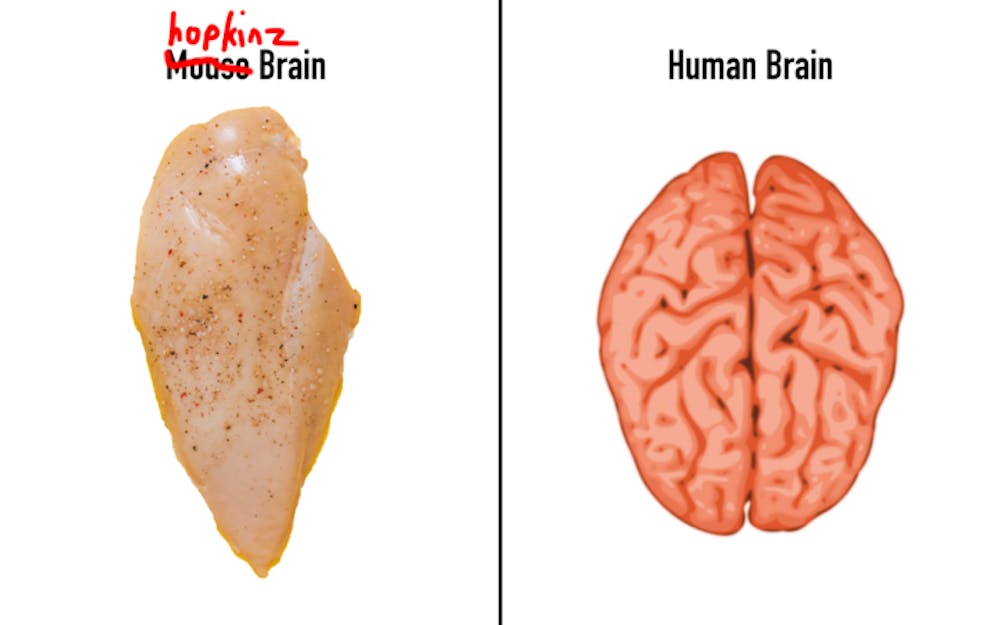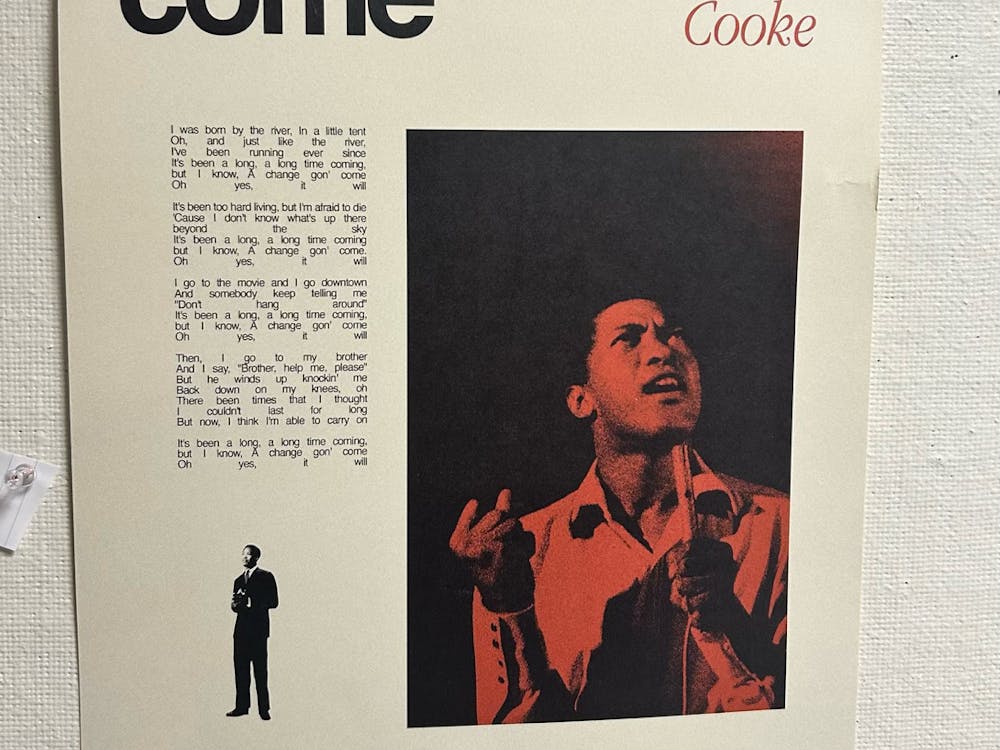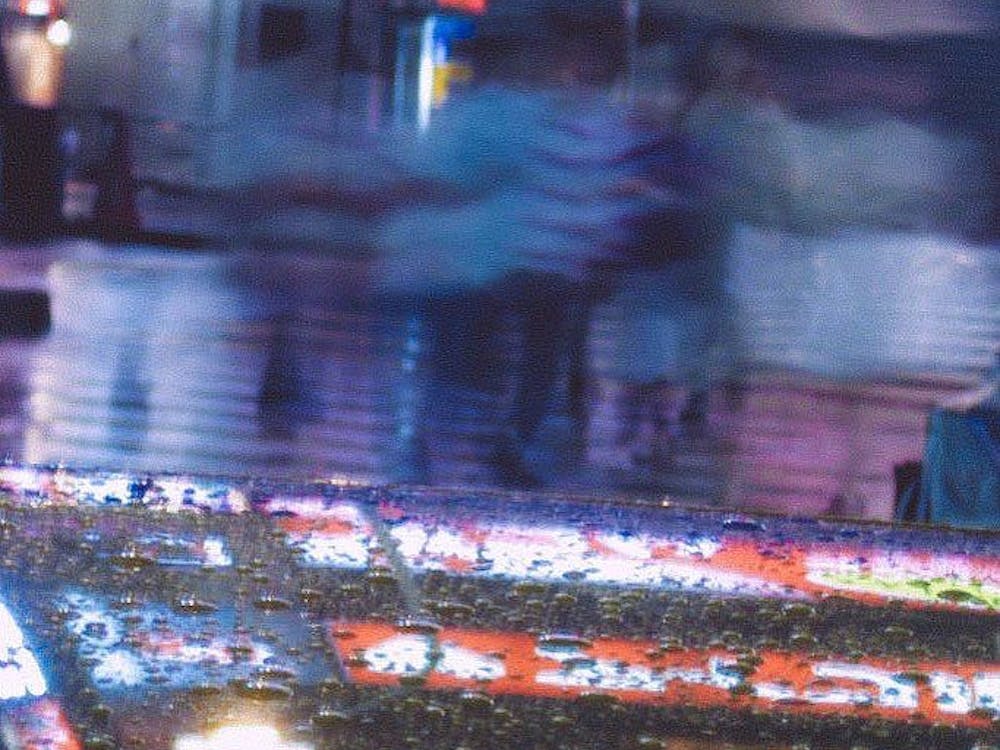APRIL FOOLS’: This article was published as part of The News-Letter’s annual April Fools’ edition, an attempt at adding some humor to a newspaper that is normally very serious about its reporting.
A team of researchers at the E. Go Lab has discovered that the average brain of a Hopkins student is smoother than that of students from peer institutions, indicating that Hopkins students have fewer neurons and decreased cognitive abilities. The team’s findings were published in the Scientific Journal of Tomfoolery.
When studying the brains of different species, researchers have long known that species considered to be more intelligent possess a cerebral cortex with more folds. Brains with more folds — or wrinkles, as some scientists call it — allow for an increased number of cortical neurons and neuron-packing density, which heighten the information-processing capacity of the brain. Humans have been found to have the highest processing capacity, followed by apes. Certain patterns of brain folding have also been linked to clinical disorders.
In an attempt to determine once and for all whether or not Hopkins students are the smartest, the researchers scanned hundreds of Hopkins students' brains and compared them to students at peer institutions.
Dr. Hippo Campus, lead researcher of the study, highlighted her team’s surprise at the results in an interview with The News-Letter.
“With the rigorous requirements necessary for Hopkins students to be admitted, we hypothesized that our students would have brains with more wrinkles,” she said. “But to learn that our students actually have the smoothest brains compared to those at peer institutions is slightly concerning.”
In order to carry out the study, Campus and her team recruited students from five schools: Hopkins, Harvard University, Princeton University, Columbia University and Duke University. They then used magnetic resonance imaging (MRI) to scan the brains of participants.
The researchers averaged all the MRI scans to create an image representing a typical student from each university. Using statistical analysis, the different voxels of each brain were compared to a normal MRI scan of a rat brain, renowned for its smoothness, and to the brain of an average human.
The representative brains for Harvard, Princeton, Columbia and Duke had a significantly higher number of wrinkles than the average human brain. However, the average Hopkins brain was found to be more similar to a rat’s smooth brain.
Junior Amy G. Dala has been following Campus and her team’s research. She described her reaction upon reading the published findings in an interview with The News-Letter.
“The way they planned to study this phenomenon was smart,” she said. “But why Campus chose to use her grant money on this study, I do not understand. Maybe the University funded this study because they thought it could be part of their promotional activities to attract high-achieving students? I don’t really know.”
She expressed that she was slightly disheartened upon reading the news because the intellect of Hopkins students was the one thing they had going for them.
In an email to The News-Letter, freshman Cory Tisole asserted that the findings made him question whether he chose the right school.
“I originally chose Hopkins because it is renowned for its academically challenging environment, both among students and faculty,” he wrote. “Now, I don’t know if I actually made the right choice. I might have to go and get my brain scanned, I guess.”
While Campus understands how her team’s findings may be seen as negative, she emphasized that these scans are not the only basis of one’s intellect.
“These findings are based on an average of all scans,” she said. “They are not representative of each individual — some may be smarter and some may be dumber.”
According to her, different kinds of intelligence are just as important as academic, including emotional intelligence and logic.
Moving forward, Campus and her team are interested in studying how to train Hopkins students’ brains to take on more intellectually rigorous activities.
“Whether it’s increasing the intellectual rigor of our classes or our admission standards, we will ensure that Hopkins students maintain their reputation of academic superiority,” she said. “Most importantly, we want to make sure that students are equipped for life.”





